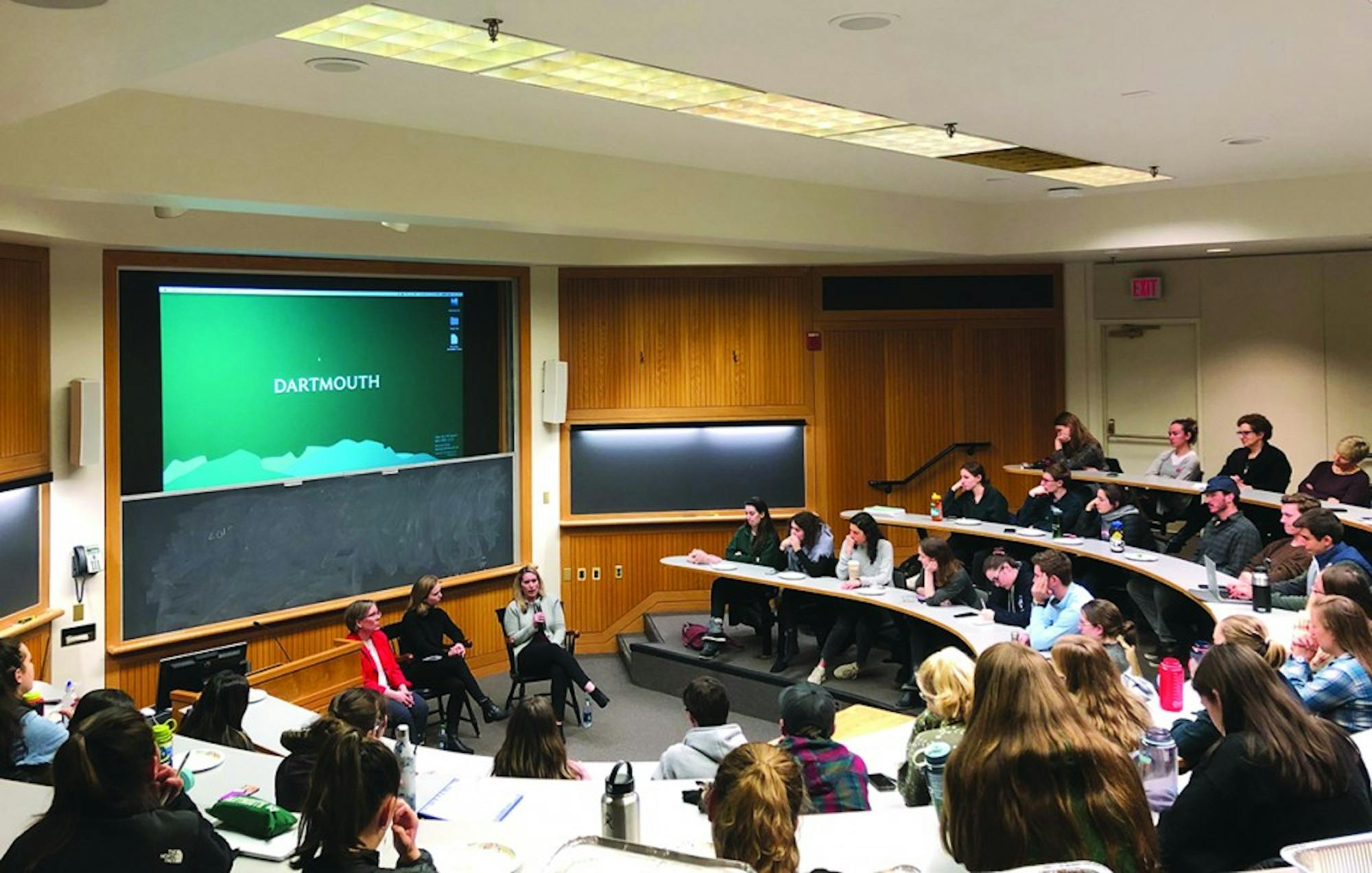On Tuesday, Dartmouth Planned Parenthood Generation Action hosted a panel discussion about reproductive healthcare and policy in New Hampshire and nationally.
Drawing around 70 attendees, the panel featured director of family planning at Dartmouth-Hitchcock Medical Center Amy Paris and director of advocacy and organizing for the Planned Parenthood New Hampshire Action Fund Kayla Montgomery. The discussion was moderated by former PPGA president Io Jones ’19. New Hampshire state senator Martha Hennessy ’76 (D-Hanover) was also slotted to speak on the panel, but inclement weather prevented her from doing so.
“I love that so many people came out to talk about reproductive health care,” PPGA internal affairs president Caroline Casey ’21 said. “I was really excited by both the turnout and the thoughtful questions people asked the panelists.”
The panelists discussed a range of issues relating to reproductive health, including how to encourage otherwise uninterested people to care about reproductive healthcare and how their work has changed since the 2016 election. Paris discussed the clinical side of reproductive health care, while Montgomery primarily spoke about advocacy and policy work being done in the state and throughout the country.
Paris said that her work as an obstetrician-gynecologist made her feel like she provides care “inside a fortress” — meaning that she and her colleagues try to provide the best care possible for their patients under legislative constraints. She also noted that she witnessed an influx of women who wanted birth control — specifically intrauterine devices — following President Donald Trump’s election due to a rising concern that the Affordable Care Act would be repealed. According to Paris, the passage of the ACA had mandated insurance coverage of birth control with no co-pay, and the repeal of this legislation would have likely rescinded that coverage.
“[Losing access to affordable birth control] was a real threat, and frankly, it still is,” Paris said.
She added that low-income women are most vulnerable to “attacks” on access to reproductive health care, such as defunding policies taken against access to contraceptives, STI testing or abortions.
Montgomery said that Trump’s election has made the fight for reproductive health care more “combative,” and that abortion has become even more of a “wedge issue” dividing people.
With respect to abortion access in New Hampshire, Montgomery said that there is “pretty good” access at the moment, in part because the state is not consistently controlled by predominantly Republican or Democratic lawmakers. However, even though both chambers in the New Hampshire legislature are currently controlled by Democrats — which Montgomery said takes some pressure off of her responsibility to testify against bills that may be harmful to reproductive health — she added that the current composition of the legislature does not preclude the state from passing abortion restrictions in the future.
Paris said that reproductive health care needs to stop being framed as “just a women’s issue,” noting that women are more than half of the population. She also said that stereotypes of women who undergo an abortion can be harmful.
“These women are often mothers, taking care of their families, who have to make difficult decisions for both wanted and unwanted pregnancies,” Paris said, adding that ignoring these women’s stories can be dehumanizing.
Montgomery also emphasized the importance of sharing and listening to women’s stories and noted that it can be hard to find women willing to share their abortion stories. She added that most women think about the consequences of getting pregnant for nearly their entire lives, while this is not a concern that many men consider regularly.
Owen Ritz ’21 attended the event with a friend and said that hearing about how relevant reproductive health is to women’s everyday lives opened his eyes to how important these issues are.
“It’s such a constant force in someone’s life,” Ritz said. “As a man, that’s something that I’ve never really thought about, but hearing how it plays a role in everyday life I think is the most powerful way to convey the importance of this issue.”
Hannah Marr ’20 came to the panel at the invitation of a friend and said that she was eager to learn more about work being done around issues of reproductive health.
“It was really valuable to hear from two similar perspectives that don’t always look at issues in the exact same way,” Marr said. “I hadn’t thought about [issues of reproductive health] from both of these viewpoints or how [these viewpoints] interact.”
Casey noted that events like this and club meetings often attract an audience that is already generally supportive of reproductive health care, and she added that big group settings like the panel event are not conducive to reaching others who do not already support reproductive rights.
“The way the conversation changes — how people change their minds — is through conversations with close friends,” Casey said. “My hope is that people who are involved in PPGA or who come to our events have the tools and information they need to really further the discussion and to speak up when they hear things that they think reflect a view that’s unsupportive of reproductive healthcare.”




